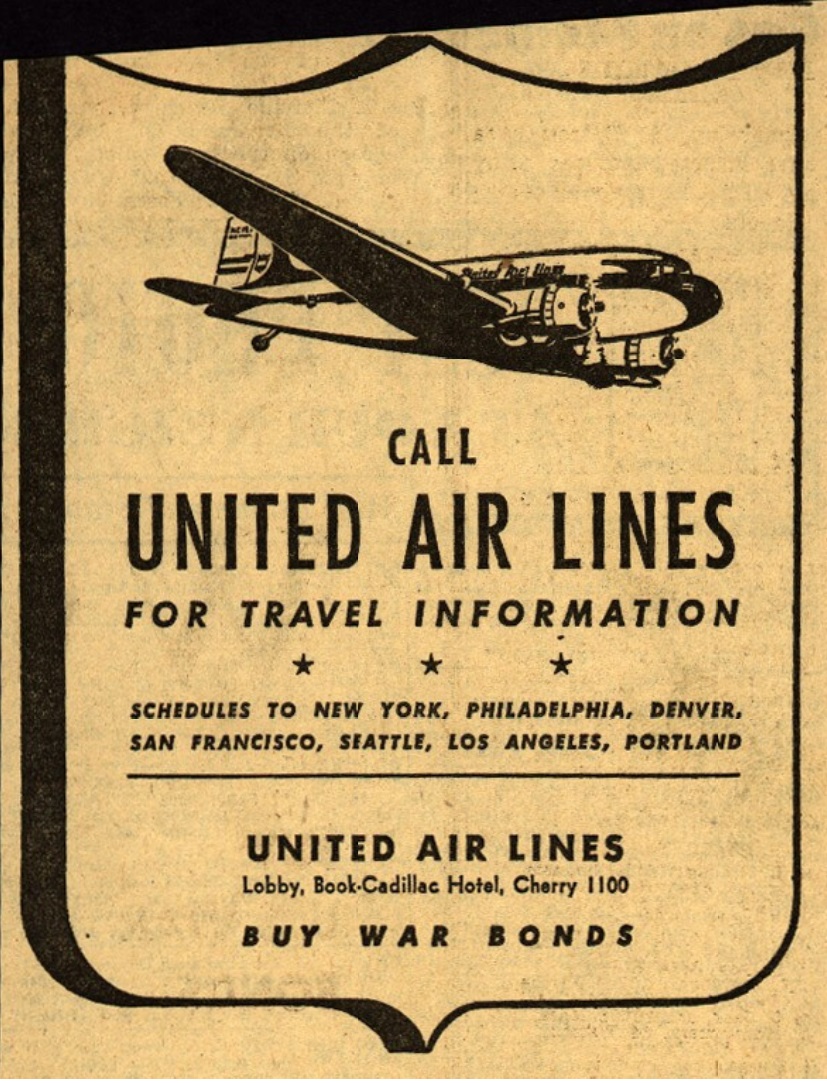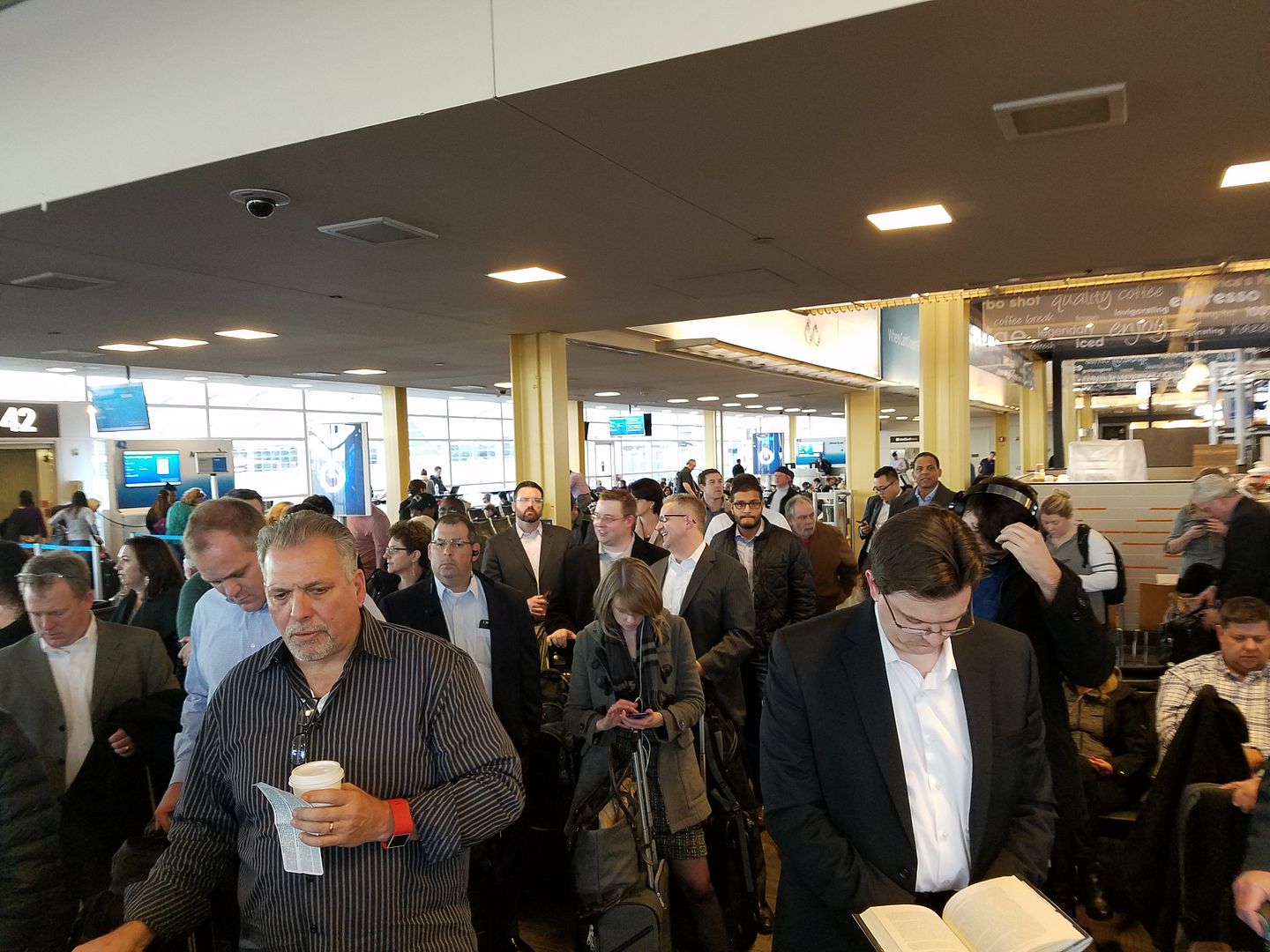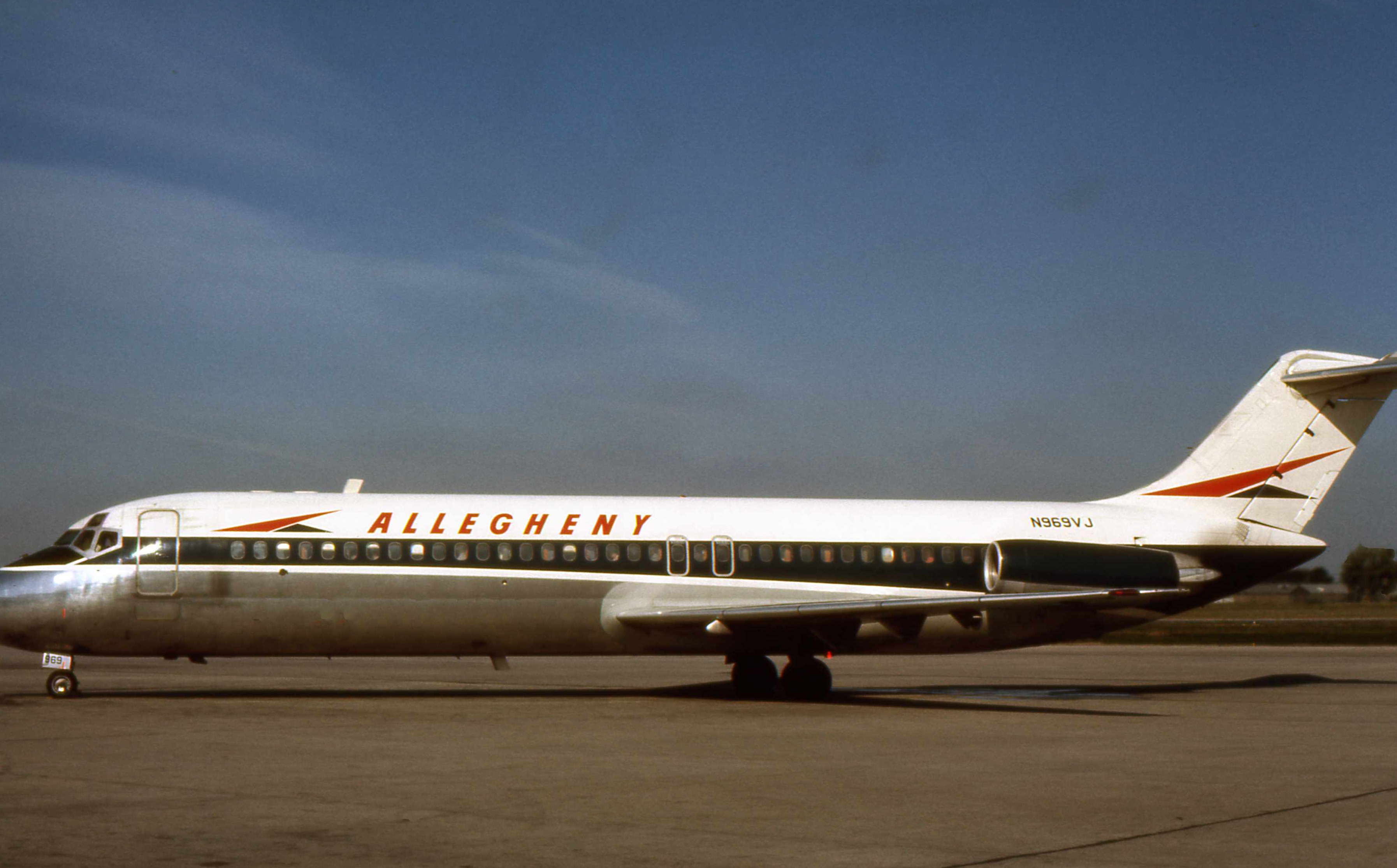Over the history of the airline industry in the United States, carriers have been subsidized and then protected by government. Prices even used to be set by government, and no shows were a lot higher than they are today.
While 46,000 involuntary denied boardings per year for U.S. airlines may seem like a lot, it’s down about 70% in absolute numbers since before deregulation — and that’s with a lot more passengers.
The story, though, of how airlines started overbooking and why they do it much less than they used to is a fascinating one. It actually begins with the Post Office.
Airlines Used to Make Their Money Off the Post Office — and This Got Them in Trouble With Government
In the early days of US civil aviation the largest airline customer was the federal government in the form of the US Postal Service.
The 1925 Kelly Act authorized the Postal Service to contract with private airlines to carry the mail. That led to airlines received most of their revenue carrying mail. Often priced to the customer by the piece regardless of weight, with the government charged for weight, airlines were known to mail bricks and other large objects to themselves in other cities to pump up their revenue.
The 1930 Air Mail Act changed how mail was priced and gave broad contracting powers to the Postmaster General. The Postmaster used this power to consolidate contracts under three major airlines, forcing many airlines out of business. This came to fruition out of a 1930 meeting that became known as the ‘Spoils Conference’.
The government had dictated which airlines would survive and prosper, and awarded contracts to airlines that hadn’t been the lowest bidder. When the story of what transpired finally came out it was dubbed the Air Mail Scandal and it led to the cancellation of contracts and to the Roosevelt administration enlisting the US Army Air Corps to carry mail. They weren’t equipped to do this.
When the Government Allowed Airlines to Carry Mail Again They Also Started Heavily Regulating Prices and Schedules
Accidents and deaths followed the Air Corps takeover of air mail, and contracts were finally returned to the private sector. None of the executives involved earlier could run airlines obtaining postal contracts and so leadership was jettisoned from the airlines.
None of the incumbent carriers were permitted to carry mail, so airlines changed their names – for instance Eastern Air Transport turned into Eastern Air Lines and Northwest Airways renamed itself Northwest Airlines. In fact all the major carriers who participated in the spoils conference received their old routes back under new contracts except United — which was apparently one of the only ones innocent of collusion — and its holding company which also controlled Boeing, Pratt & Whitney, Sikorsky and more were broken apart. Bill Boeing retired in his early 50s.

United Airlines Ad, 1943
The Civil Aeronautics Act in the late 1930s created a new independent Civil Aeroenautics Authority (two years later with some responsibilities split into a precursor of the FAA, it was renamed the Civil Aeronautics Board). It was given the power to regulate airfares and decide which airlines served what routes.
The CAB saw it as its mission to limit entry and protect airlines from ‘ruinous competition’. It kept fares high and prevented airlines from expanding into many routes served by other carriers.
Fares Were Refundable and Denied Boarding Compensation Was Miniscule
In the regulated era fares were generally refundable. This meant passengers changed plans all the time, and overbooking practices began. Airlines did their best to develop models to predict how many passengers would show up for a given flight based on the day of week and time. And they had more flexibility to overbook on short routes where they offered many flights (since a bumped passenger might simply fly an hour later) compared to longer routes with fewer flights (given the degree of inconvenience).
Right before deregulation there were about 150,000 denied boardings per year.
Under rules from the mid-1970s [14 CFR § 250.5 (1975)] the Civil Aeronautics Board regulations required airlines to:
- establish boarding priority for passengers
- offer denied boarding compensation
Denied boarding compensation was set at the cost of their ticket (not up to 4 times the cost of the ticket as it is today), but not less than $25 and no more than $200. Passengers could decline and sue if they preferred.
Ralph Nader Takes Overbooking to the Supreme Court
On April 25, 1972 Ralph Nader’s organization reserved him a seat on an Alleghany Airlines flight from Washington DC to Hartford, Connecticut for travel on flight 864 April 28th at 10:15am.
Allegheny booked 107 passengers for 100 seats. Nader wanted the airline to see if any standby passengers had been allowed to board, or to solicit volunteers to allow him to travel in their place, but the airline wouldn’t do either.

Passengers Crowding Washington National Airport in the Modern Era
The airline offered him a connecting flight through Philadelphia with 10 minutes to change planes. Instead he flew to Boston and one of his staffers picked him up and drove him to Hartford.
Nader also sued, arguing that the airline failed to inform him in advance of its overbooking practices, and failed to follow its own boarding priority rules.
At the District Court level Nader won:
- $10 in compensatory damages and $25,000 in punitive damages for himself
- $51 in compensatory damages and $25,000 in punitive damages for his organization
The federal appeals court overturned the judgment for his organization, contending they were too far removed from the transaction. They also overturned punitive damages for Nader arguing that Allegheny’s conduct wasn’t intentional.
The appeals court rejected the argument that Civil Aeronautics Board powers eliminated private common law remedies for unfair and deceptive practices.
The case made it to the Supreme Court which rejected the argument that the Civil Aeronautics Board had to first determine whether a practice is deceptive before a suit could proceed. As a result, the Court substantially strengthened the ability of customers to sue airlines for overbooking.
The Supreme Court Explains the Practice of Overbooking
The Supreme Court explained in Nader v. Allegheny Airlines, Inc., 426 U.S. 290 (1976) how airline ticketing practices developed during the regulated era:
[O]verbooking is a common industry practice, designed to ensure that each flight leaves with as few empty seats as possible despite the large number of “no-shows” — reservation-holding passengers who do not appear at flight time.
By the use of statistical studies of no-show patterns on specific flights, the airlines attempt to predict the appropriate number of reservations necessary to fill each flight. In this way, they attempt to ensure the most efficient use of aircraft while preserving a flexible booking system that permits passengers to cancel and change reservations without notice or penalty.
At times, the practice of overbooking results in oversales, which occur when more reservation-holding passengers than can be accommodated actually appear to board the flight. When this occurs, some passengers must be denied boarding (“bumped”).
The chance that any particular passenger will be bumped is so negligible that few prospective passengers aware of the possibility would give it a second thought.
Interestingly involuntary denied boarding rates that were orders of magnitude higher than today were considered ‘so negligible’ that passengers might not know it’s possible.

Piergiuliano Chesi [CC BY 3.0], via Wikimedia Commons
Your Right to Sue is Now More Limited, But Deregulated Ticketing Practices Still Reduce Overbooking
The Airline Deregulation Act pre-empts most state regulation of airlines, and has even been held by the Supreme Court to prevent you from arguing a state contract claim that an airline has a duty of good faith and fair dealing.
Nonetheless, despite limiting consumers ability to sue, involuntary bumps are way down.
There are two reasons for this.
- Nonrefundable tickets. On the one hand it seems unfair that you buy a ticket and can’t get your money back if you don’t want to fly, but an airline doesn’t have to fly you. On the other hand, because of nonrefundable tickets passengers have a huge incentive to show up and travel. Change fees have gradually risen over the last 20 years and higher change fees increase that incentive. There are fewer no shows, and airlines don’t need to overbook as much as a result.
- Much better modeling. Airlines have gotten better at anticipating which flights will be overbooked by how much, and also figuring out how to solicit volunteers — they even do it during online check-in, and Delta even asks customers how much it would take to get them to give up their seat.
- Increased voluntary denied boarding compensation. The government shields airlines from liability but at the same time their regulatory obligation to reimburse passengers is higher than it used to be, so they’re willing to offer more voluntary compensation to avoid involuntary compensation. Not only is the amount of involuntary cash compensation higher (capped at $1350 but not always that high), voluntary compensation is often offered in the airline’s own scrip which has a lower cost to the carrier than cash and may expire. This is of course before Delta and United said they’ve authorized agents to increase voluntary compensation beyond DOT liability limits.
Airlines became heavily regulated in the 1930s. Overbooking grew during the regulated era. Since then overbookings have been on the decline. I have long advocated the restoration of the ability to sue airlines more broadly, which Ralph Nader fought to the Supreme Court for.


It seems the narrative ended abruptly.